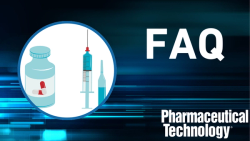
OR WAIT null SECS
- About Us
- Advertise
- Contact Us
- Editorial Info
- Editorial Advisory Board
- Do Not Sell My Personal Information
- Privacy Policy
- Terms and Conditions
© 2026 MJH Life Sciences™ , Pharmaceutical Technology - Pharma News and Development Insights. All rights reserved.
Sandoz Resubmits BLA for Biosimilar to Amgen’s Neulasta
Novartis’ Sandoz resubmitted its biologics license application (BLA) for a proposed biosimilar pegfilgrastim to FDA in response to a 2016 complete response letter from the agency.
Sandoz, a Novartis division, announced on April 3, 2019 that it resubmitted its biologics license application (BLA) for a proposed biosimilar to Amgen’s Neulasta (pegfilgrastim) to FDA in response to a complete response letter from FDA received in June 2016. Neulasta is one of Amgen’s blockbuster drugs, with approximately $4.5 billion in 2018 sales.
The resubmission includes new data from a pivotal pharmacokinetics (PK) and pharmacodynamics (PD) single-dose, three-period cross-over study. The study compared Sandoz’s pegfilgrastim with United States-sourced reference pegfilgrastim, Sandoz’s pegfilgrastim with European Union (EU)-sourced reference pegfilgrastim, and US with EU-sourced reference pegfilgrastim.
Pegfilgrastim is a long-acting version of filgrastim and may be prescribed to appropriate cancer patients undergoing chemotherapy to enhance the production of infection-fighting white blood cells. Filgrastim is similar to granulocyte-colony stimulating factor (G-CSF), a natural protein produced by the body. Pegfilgrastim, like filgrastim, may be used to reduce the duration of neutropenia (low white blood cell count) and the occurrence of febrile neutropenia (low white blood cell count with a fever). Both neutropenia and febrile neutropenia are caused by cytotoxic chemotherapy (medicines that destroy rapidly growing cells).
"For the tens of thousands of US cancer patients undergoing chemotherapy, treatment options that can be individualized right from the start, such as long- and short-acting filgrastim biosimilars, are key to help manage the risk of serious complications related to infection," said Mark Levick, MD, PhD, global head of development, biopharmaceuticals, Sandoz, in a company press release.
Sandoz states that it is focused on strengthening its portfolio in oncology care and has three approved biosimilars in the US and eight marketed biosimilars in the European Economic Area, including the pegfilgrastim biosimilar. In September 2018, Sandoz received a positive opinion for marketing authorization of its pegfilgrastim biosimilar from the European Medicines Agency’s Committee for Medicinal Products for Human Use.
"The US market is just beginning to benefit from biosimilars, as shown by the success of our filgrastim, the first approved biosimilar in the US,” said Levick in the press release. “The submission of our pegfilgrastim biosimilar application is another step for us as we continue to lead the way in creating early and expanded patient access to life-changing biologics."
Source: Novartis
Related Content:



